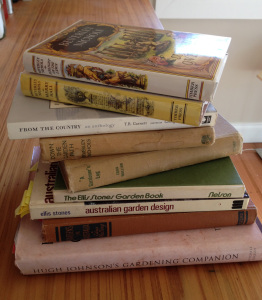 (FILES) This file photo taken on May 23, 2017 shows US film producer Harvey Weinstein attending the De Grisogono Party on the sidelines of the 70th Cannes Film Festival in Antibes, France. Two more women were due to go public on October 20, 2017 with horrifying details of sexual attacks they say they were subjected to by disgraced Hollywood mogul Harvey Weinstein. They include a case being investigated by Los Angeles police of an Italian model and actress who says the 65-year-old producer raped her after dragging her into the bathroom of her hotel suite in Beverly Hills in 2013. / AFP PHOTO / Yann COATSALIOUYANN COATSALIOU/AFP/Getty Images
(FILES) This file photo taken on May 23, 2017 shows US film producer Harvey Weinstein attending the De Grisogono Party on the sidelines of the 70th Cannes Film Festival in Antibes, France. Two more women were due to go public on October 20, 2017 with horrifying details of sexual attacks they say they were subjected to by disgraced Hollywood mogul Harvey Weinstein. They include a case being investigated by Los Angeles police of an Italian model and actress who says the 65-year-old producer raped her after dragging her into the bathroom of her hotel suite in Beverly Hills in 2013. / AFP PHOTO / Yann COATSALIOUYANN COATSALIOU/AFP/Getty Images 


Tell me when you have heard this from anyone, especially the men of late who have finally been revealed for their sexual misconduct:
“I didn’t realize what I was doing. I now know it was wrong. I apologize to anyone who might have been hurt by my actions.”
Sure, lots of other things are usually said. I only wanted to hit the key, common themes. I find astonishing what usually is only an indirect admission of guilt, usually spoken to the public, rarely directly to the women. And, as in the final sentence, this is how it is said, “If anyone was hurt,” as if it’s not on these men for what they did, but on the women for not receiving it well.
Can you imagine this: “If you were killed by the bullet I shot into your heart, I’m sorry.” What’s the difference between that and “I apologize to anyone who might have been hurt by my actions”?
Now, tell me when you have heard this from anyone, especially the men of late who have finally been revealed for their sexual misconduct:
“I did a terrible thing. I knew better. I knew I was crossing a line. I knew this was not the same as dating, and romantically falling for each other, and giving ourselves to each other. Quite the opposite, I was no better than and no different from a rapist. I know that it was my actions which hurt these women, which hurt you (uses their names). I was not sorry at the time, and I sure hoped this would never come to light. Now that these women have spoken, and I hear the pain in their voices, and recognize in their words the offense I perpetrated upon them, I finally and fully realize what I did, how I used my position to my advantage and their disadvantage, how I put them into this spot of remaining silent for so long.”
That’s a lot, and oh how I would love to hear such direct admissions of guilt, but those words should not be the end. A key thing—perhaps THE key thing—remains missing. Here it is:
“Now, I dare to ask for their forgiveness. Please, (using their names), forgive me. No, I do not deserve it, but now that I am actually owning up to what I did, I am a broken man for it. Thus, I find that I really need your forgiveness. I am truly sorry for what easily were my unforgivable actions, Finally, I have opened my eyes. With your forgiveness, I hope to heal in such a way that, frankly, I can grow up and be the man that I always should have been. I am filled with remorse. I regret my actions. I repent of them. Please, forgive me.”
There it is. That’s what’s always missing, a direct, no wiggle room allowed, remorse and regret and repentance. Finally, and ultimately, the request to be forgiven—with a humility-filled “please”—so that the women and the world can believe you, is always missing. And it is vital to the entire process, to the mending of relationships, even if relationships might not, or cannot be resumed.
And, please, don’t tell me, “They might have been advised by their lawyers not to go that far.” If they are going to admit guilt, then admit guilt. If they are going to own up to their actions, then go all the way. If they want the women and us to see that they truly have been knocked to their knees by their ugly, vile—yes, let’s even call them sinful and criminal—actions, then go so far as to beg forgiveness.
Yeah, beg. Put some weight and emotion into that “please” which needs to come before the “forgive me.” And don’t manufacture it. We’ll see it, if it’s not genuine. You will be raked over the coals, and rightly so, if we think that you slammed your hand in a door in order to produce those tears.
Choke up. Break down. Fall apart. That’s what you did to the women, you punks. The equal and opposite reaction would be for you to do the same.
Let’s have all of these:
- Remorse
- Regret
- Repentance
- Begging for forgiveness
Do you deserve anyone’s forgiveness? Of course not. No one, who has done a terrible thing, deserves to be forgiven. Forgiveness is not about deserving or earning or clearing the air.
Forgiveness is a gift.
This is not the stuff of the courts, of guilty and not guilty and meting out punishment. This is about human relationships. Forgiveness is about healing human relationships.
If a relationship can be healed so that it can resume, then the reconciliation will be marvelous proof of the guilty party’s regret and the offended party’s generosity.
If it is impossible for the relationship to be resumed—and the hurt party need not feel it is their obligation to put themselves back into this person’s life—then they will have done all they could do, the offender repenting and the offended forgiving. As for the courts or lawsuits, they are completely separate things.
Apologizing and repenting are not the same thing. The word, apologize, originally meant to make a defense, to explain oneself for the purpose of being understood, a person making his case. Over time, it morphed into meaning sorrow for our actions and repentance.
The origin of repent is to turn one’s mind around, as in “I used to think it was okay to do this, but now I know I was wrong.” To imagine it vividly:
- To stop looking at the person who is causing you to lust for him or her.
- To take your eyes off the thing you cannot afford to buy so that you don’t covet it and spend money that you don’t have.
- To not enter the casino where you know your gambling habit is going to bite you once more.
While my having been a Christian minister has me especially attuned to this, know that Christians do not have a corner on it. This is the language of all religions. Frankly, religion need have nothing to do with it; it’s common to all human beings, to every type of relationship.
If you blew it, admit it. Let us see remorse. Let us hear regret. Let us reckon your repentance. Directly tell the person you hurt, mincing no words. With a humble “please,” ask for her or his forgiveness.
If you are the hurt one, recognize the sorrow. Realize that you are prone to falling short with others and have wanted their forgiveness so many times, and always were so glad to be forgiven, so you don’t want to do to them what you want no one to do to you. Regardless of whether or not you can restart a relationship with this person, melt your heart so that it is not hard. Forgive the person. Then, move on.
When these public figures, many of whom I have either appreciated or admired their work, some of whom I have really liked, who brought joy and laughs and fun into my life, actually show remorse, regret, and repentance, and then go so far as to humbly beg forgiveness, then—and only then—will the offense which they gave me be removed. Until then, they have lost my respect, and any affection I might have had for them.
I always have forgiveness in my heart, ready to give it to those who are sorrowful, and oh how I want to give it away as freely and immediately as the Lord does for me. But, it has to be requested. People need to own up, confess, and humbly ask.
Harvey and Kevin and Louis and Charlie and Matt and all of you men, if you are guilty, admit it to yourself and then admit it to the world. Repent. Beg forgiveness. Give the women, and give all of us, the chance to finally see your sorrow, perhaps even to respect you for your honest humility, and forgive you.
Perhaps—and I so pray it for the sake of the women whom you offended, and hurt, even brutalized—they can begin to move on. To be healed—oh, to be healed!
Hopefully, all of us can move on and, dare I hope it, become better people in all of our relationships.
Advertisements Share this:




